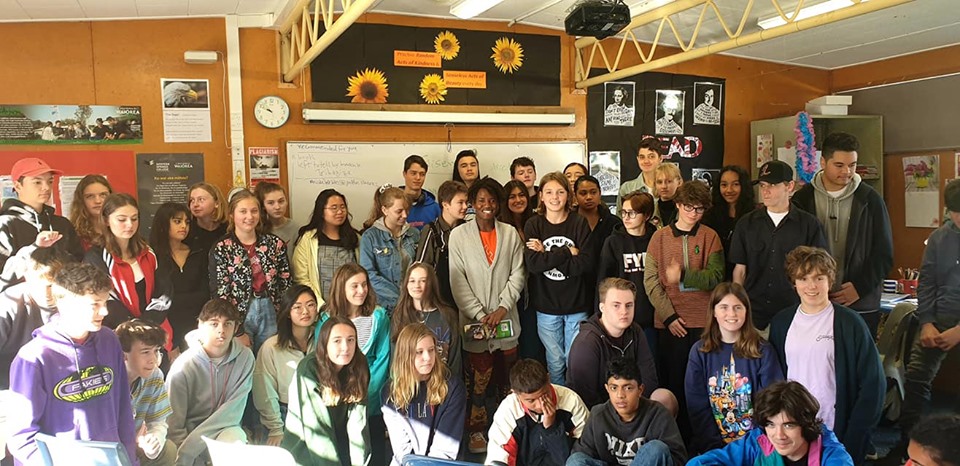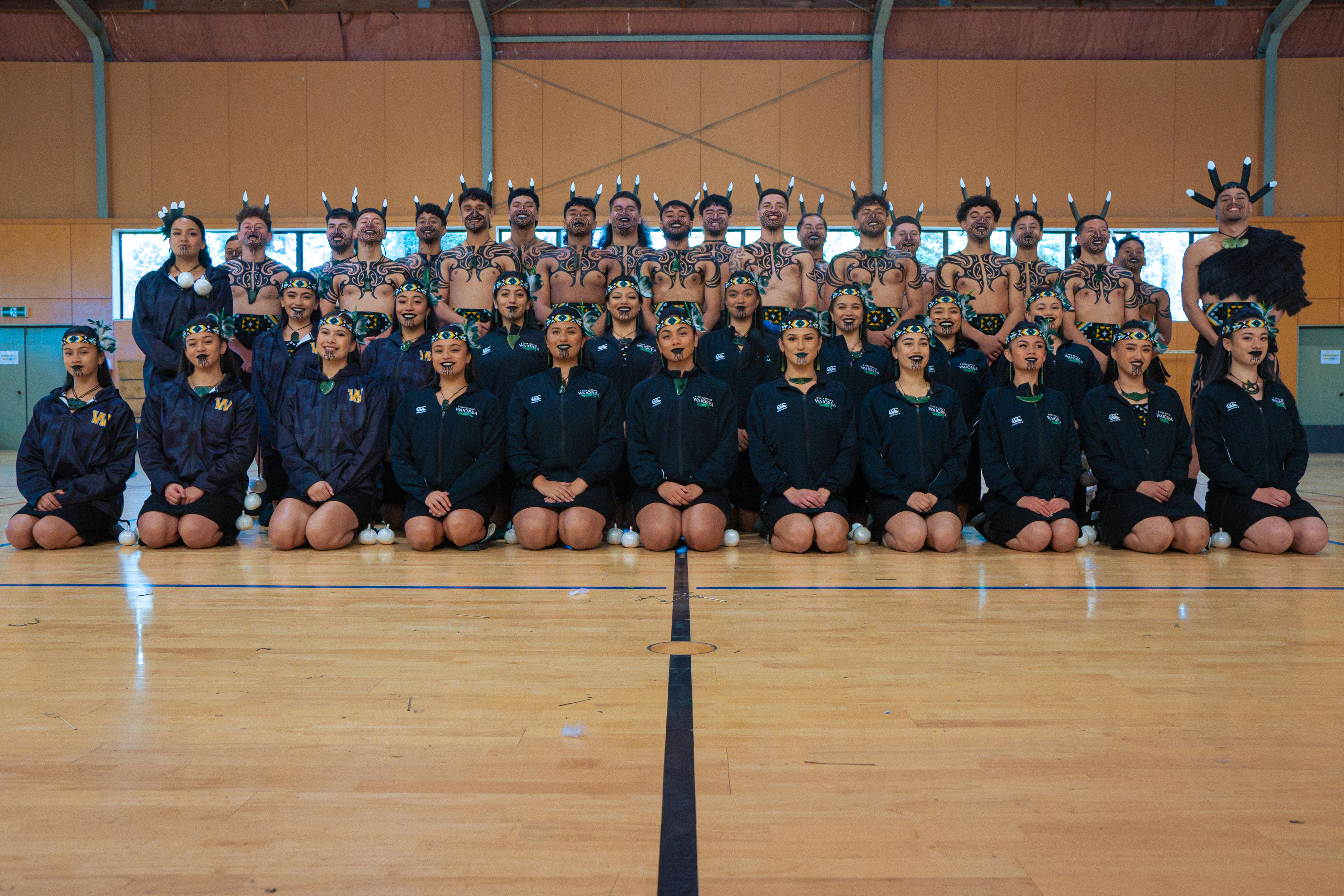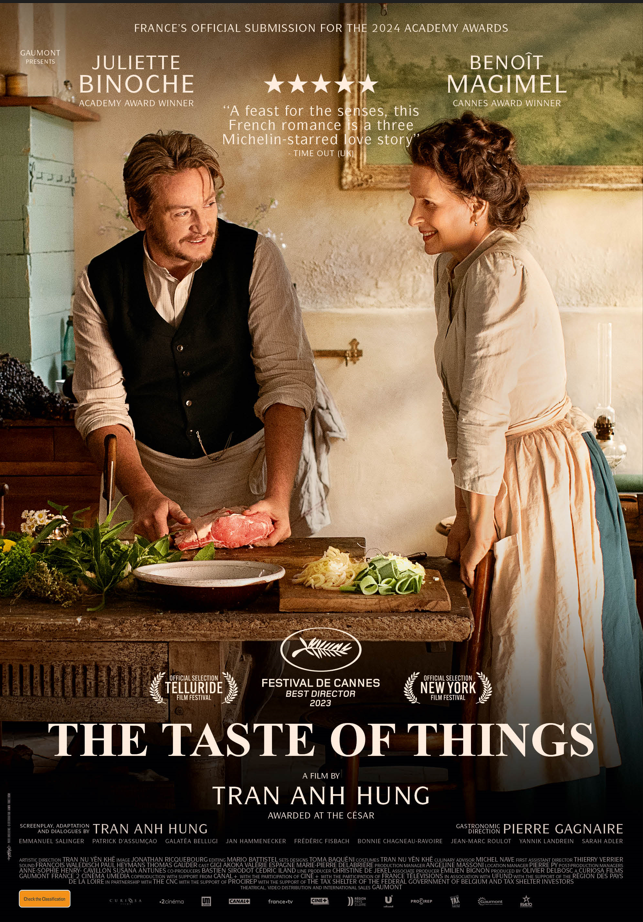To our school community, “Kua hinga he tōtara i te wao nui a Tane.” “A…

Reflecting on Olivier Niyitegeka’s visit
Thursday 16 May 2019
I had the amazing experience today of listening to a young Rwandan man speak to a large group of Kate Todd’s year 11 English students. I am writing this after hearing Olivier Niyitegeka speak. Watching the faces of the young people as they listened and then hearing what a young Samoan woman, who is very shy, had to say afterwards in private are things I will never forget.
Olivier’s story is almost impossible for someone who has grown up in family in a mostly peaceful country to believe. The very idea that someone does not have a name, a known birthdate, knowledge of who their parents are or whether they had siblings, is far removed from the experiences of everyone I have ever known. Our heads tried to find a way to make sense of these ideas as we listened.
Olivier told us of the difficulties of life growing up in an orphanage in Rwanda after being found as a baby, alone, swaddled and hidden under a bed, during the Rwandan genocide. Without family of his own, he made a family with potted flowers as aunties and uncles, and rocks as other family members. Through the generosity, legal nous and tenacity of his sponsor he was brought to New Zealand as a sixteen year old. He expressed his difficulty in maintaining relationships due to the lack of bonding in babyhood and told of his determined efforts to remain in New Zealand and not be deported back to Rwanda where he has no place to live and no kinship ties. He also articulated clearly the psychological challenges that are constantly with him; the fears, the doubts about his own identity and where home is. Unhelpful and unwelcome thoughts crowd his mind, unbidden, at any time of the day or night. He told of his coping strategies and his determination to overcome the depression and sense of hopelessness that has overtaken him at various times along his journey to this point. He came across as an incredibly positive person, which his young audience (and the teachers) were monumentally impressed by.
Olivier also explained the political situation in Rwanda which was a creation of it’s colonisers; Germany in the 1890s, and Belgian’s after WW1 – who perpetuated the reliance on Tutsis to control Hutus, saving the colonisers personnel and military spending. When France stepped in and mobilized support behind Juvenal Habyarimana, Hutu coup leader/president, we understood the impact of colonisation and how minor divisions between Tutsis and Hutus had been exploited. Olivier voiced the rage of the Hutus against the Tutsis for befriending the ‘strangers’ rather than supporting other Rwandans, referring to the way Tutsis benefited from closer relationships with German and Belgian colonisers.
The student I was working with was full of big emotions Thoughts about what she had seen in the movie “Hotel Rwanda” coalesced into new understandings. She said she better understood the impact of colonisation, and how the colonisers knowing, aggravated the divisions between two different local groups. She instantly connected the destructive impacts of colonisation to the constant struggle of Māori to reclaim their land and she expressed admiration for the continuing determination of Māori to fight to address the impacts of colonisation in New Zealand. She also said she could not understand how anyone could come to the point where they could kill another human being in hatred. Finally, she said how moving it had been to hear Olivier say how welcoming the Māori and Samoan students at Mount Albert Grammar school had been, and how they made him feel that he was part of a family. Her culture and her faith teach that we are all equal and we are here to support one another in our differences. We sought Olivier out as he was walking alone leaving school and she had a chance to speak to him personally of these things. She addressed him partly in Samoan, which moved him too. I think his young woman has been permanently changed by hearing what this young man, of no fixed immigration status, had to say.
Thank you to Kate and Olivier for an hour of inspiration, food for thought and thoughts for action.
Trina Sellers – Learning Support



